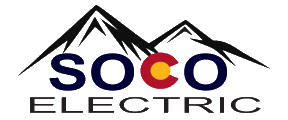Solar Energy For Your Home
Adding solar energy to your home is a significant project that involves a combination of electrical work and knowledge of solar power systems. While a solar panel installer typically handles the specific task of installing the panels, a licensed electrician plays a crucial role in integrating the system into your home’s electrical grid.
Here’s what an electrician would typically do for a solar energy addition to your home:
1. Site Assessment For Solar Energy Project
- Electrical System Evaluation: An electrician will assess your existing electrical system to ensure it can safely integrate with the solar power system. This includes evaluating your home’s electrical panel, wiring, and grounding system.
2. System Design and Planning
- Design Coordination: The electrician collaborates with the solar installer to design the solar energy system, considering factors like panel placement and the route for running electrical wiring.
3. Installation
- Wiring Installation: The electrician is responsible for installing all necessary wiring from the solar panels to your home’s electrical system. This includes DC wiring from the panels and AC wiring to connect to the electrical grid.
- Inverter Installation: Solar panels generate direct current (DC) electricity, which needs to be converted to alternating current (AC) for use in your home. The electrician installs and connects the inverter, which performs this conversion.
- Electrical Panel Upgrades: If your current electrical panel is not adequate to handle the additional load or the specifics of solar integration, the electrician will upgrade your panel.
- Grid Connection: The electrician ensures that the solar system is properly connected to the electrical grid, if you opt for a grid-tied system. This includes integrating net metering, which allows you to send excess electricity back to the grid.
4. Safety and Compliance
- Building Codes and Standards: The electrician ensures that all installations comply with local electrical codes and standards.
- System Testing and Safety Checks: After installation, the electrician performs tests to ensure that the system is safely and correctly installed. This includes checking the inverter, the connection to the grid, and ensuring all safety systems (like disconnect switches) are in place.
5. Coordination with Utility and Inspections
- Utility Approval: In many areas, utility company approval is required for a grid-tied solar system. The electrician often coordinates with the utility company to ensure compliance and approval.
- Inspection: A professional electrician will ensure that the system is ready for any required inspections by local authorities to certify the installation.
6. Maintenance and Troubleshooting Of Solar Power System
- System Maintenance: Post-installation, electricians may offer services for the maintenance of the electrical components of your solar system.
- Troubleshooting and Repairs: If there are any issues with the solar system’s electrical performance, a qualified electrician is usually the professional to call.
An experienced and qualified Colorado Springs electrician is essential for safely and effectively integrating a solar energy system into your home.
Their expertise ensures that the solar panels not only function optimally but also comply with all safety standards and local regulations. Working in tandem with solar panel installers, electricians help make the transition to solar power smooth and efficient for homeowners.
NEED AN ELECTRICIAN IN COLORADO SPRINGS?
Free Consultation!

“Soco Electric exceeded my expectations. They installed an outdoor hookup for a new hot tub. Everything ended up looking very built in, with the conduit even formed nicely around small bends of our siding. The price was very reasonable, and Jonathan is knowledgeable and good at explaining the work needed.” Ted Firlit
